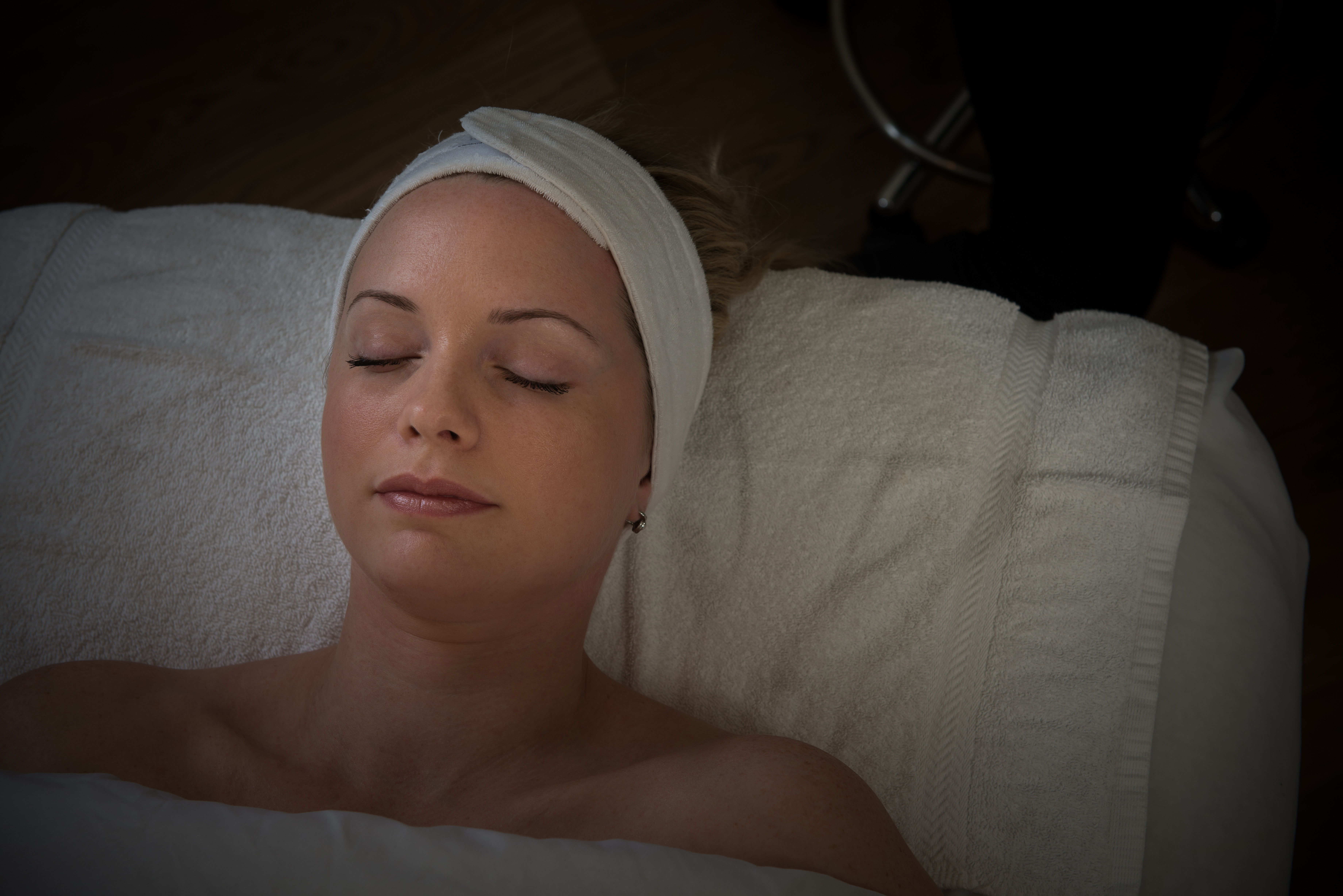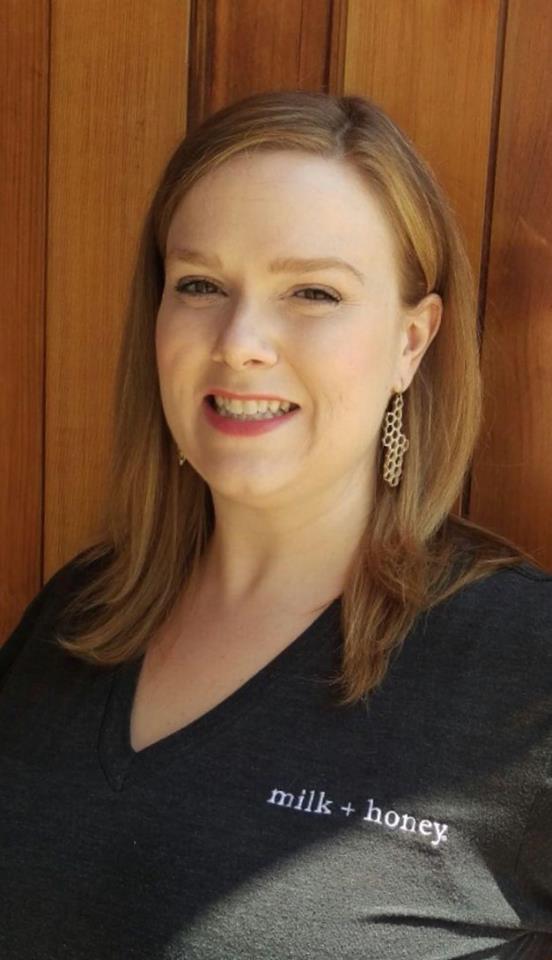
Skincare is a multi-faceted topic. Depending on your skin type, dietary habits, sleeping habits, environment, activity level, as well as a slew of other lifestyle factors, the approach to personal skincare is varied and subjective. To help navigate your skincare concerns, we asked milk + honey esthetician, Diane K. (based at our South Lamar location), to answer six frequently-asked skincare questions. Have another to ask? Don’t be shy! Leave it in the comments and we’ll respond ASAP.
Wait, you’re not supposed to put product on your nose? Like any product? Or just moisturizer?
Not true. Don’t skip your nose when applying product! Your nose, like the rest of your facial features, needs to be cleansed and moisturized to maintain good skin health and oil balance. If your serum is meant for your entire face, as opposed to a spot treatment, then make sure to include your nose when you apply. Same goes for your moisturizer and sunscreen. If you’re someone who suffers from an oily nose, I suggest two things. One: use a blotting tissue to remove excess oil without having to strip your natural skin barriers. Two: use matte-finish makeup, like Youngblood’s Anti-Shine Mattifier. Make sure your makeup and moisturizer are oil-free.
Is it best to apply moisturizer to damp skin?
The best time to apply moisturizer is after your skin is freshly cleansed. For your body, this usually is after a shower or bath. Your skin pores are open from the heat and are ready to receive a plush protective barrier, like your moisturizer! For your face, apply your moisturizer after you apply a serum tailored to your skin.
What’s the difference between the two? A serum is very high in liquidity and its molecules are small. A moisturizer is heavier and the molecules are larger, therefore trapping the serum between your skin and the outside world. If you did this step in reverse, the serum would sit on top of the moisturizer because its molecules wouldn’t be able to break through the thick layer. Moisturizers work all day to push the concentrated ingredients of the serum down into your skin. If you didn’t apply a moisturizer, the serum and any hydration on your skin could evaporate throughout the day, leaving your skin vulnerable. I always tell my clients to think of their moisturizer as plastic wrap. By putting on a moisturizer, you’re sealing in all of the serums, natural oils, and hydration from your skincare products. If you tend to have oilier skin, I suggest a lightweight, oil-free moisturizer, such as CosMedix
Mystic or
Phytoharmony. Even oily skin needs a barrier.
I’ve been told different things about “level of skincare” in the morning… Should I be washing my face? If yes, then how intense should the face wash be? What are your best AM best practices?
How often to cleanse your skin is always up for a good debate. We can all agree that cleansing your skin at night is very, very important. It takes off any makeup, excess oil, environmental toxins, and other impurities you’ve ‘collected’ throughout the day. But even when you sleep, your skin can still sweat and acquire grime from the air and your pillow. Cleansing your skin in the morning gives you a fresh start to the day and a clean, smooth slate for your morning serums, sunscreen, and makeup. A gentle, high-quality cleanser like Cosmedix
Benefit Clean or
Gentle Clean doesn’t strip your skin of natural oils and is a great way to start your morning routine. This step is especially important for those with acne-prone and oily skin.
How important is retinol use in PM routine? What retinol products are best?
Retinol (also knowns as Vitamin A) is one of the best all-around skincare ingredients you will find! Retinol does it all — it helps to rebuild collagen, decreases the appearance of pores, diminishes fine lines and wrinkles, brightens your complexion, and calms breakouts. It works by speeding up the production of new skin cells and shedding the old ones. You should only use a retinol at night because it can make your skin photosensitive in the sun; plus! nighttime is when your skin is naturally repairing and rebuilding. An awesome product to get your retinol fix is
Cosmedix Refine. Refine has a 4% micro-incapsulated (time-released) retinol complex and amino acids. If you’re new to using a retinol, I suggest you start using one every other night after cleansing your skin. Then, work your way up to nightly use to get your skin accustomed to this powerful ingredient. It’s important to remember to always apply your moisturizer after your retinol to lock it in. During the day, you should also be using a sunscreen regardless if you use retinol in your nighttime routine. If you think your skin is too sensitive for a retinol, I suggest
Cosmedix Serum 16! It’s a super hydrating serum with Vitamin E and a more gentle retinol complex that delivers the same benefits without overtaxing your skin.
I’ve always thought it was incredibly important to apply moisturizer at night? Is that true? Does it apply more to certain skin types?
Applying moisturizer at night should be the last step in your nighttime routine. It locks in all of the good stuff you just applied, like serums and vitamins. Nighttime is when your skin gets a break from the outside world and can concentrate on regenerating. Which is why your most potent and powerful serums should be used at night, likes retinol and alpha-hydroxy acids. Finding the right nighttime moisturizer is key. If you apply your moisturizer and you are still feeling dry or tight after it soaks in, then you may need to pump up your hydration level. Look into a creamier moisturizer like
Cosmedix Emulsion; or if your skin is feeling heavy and your moisturizer is sliding off, try a lighter-weight moisturizer or oil-free, like
CosMedix Phytoclear.
What would you say is the single most important step of the nighttime skincare routine?
The single most important step in your nighttime routine is your serums. Whether you are applying a retinol for anti-aging, a lactic acid for brightening, or even a calming serum for redness, you want to give your skin the best elixir to repair itself for the next eight hours. It doesn’t matter if you are correcting a skin concern, like acne scars, dark spots or crows feet, or anti-aging prevention, everyone needs a serum. If you’re not sure which serum is right for you, just ask your milk + honey esthetician. We always have great recommendations for clients!
About Diane




1 Comment
What should I use to remove blackheads after cleansing my face instead of squeezing, even though blackheads come out quite effortlessly?